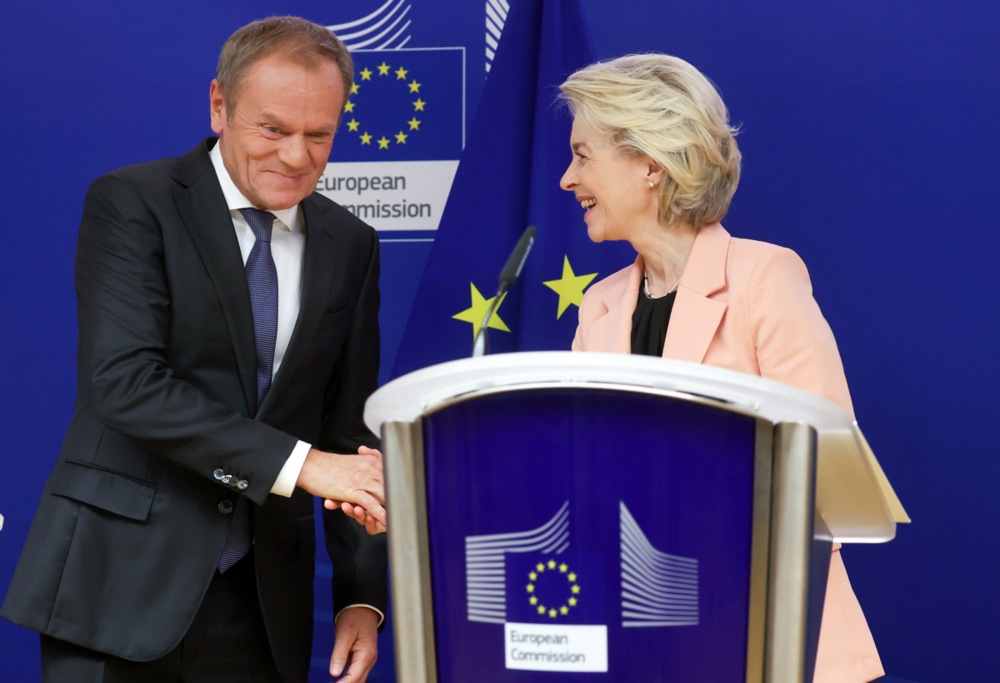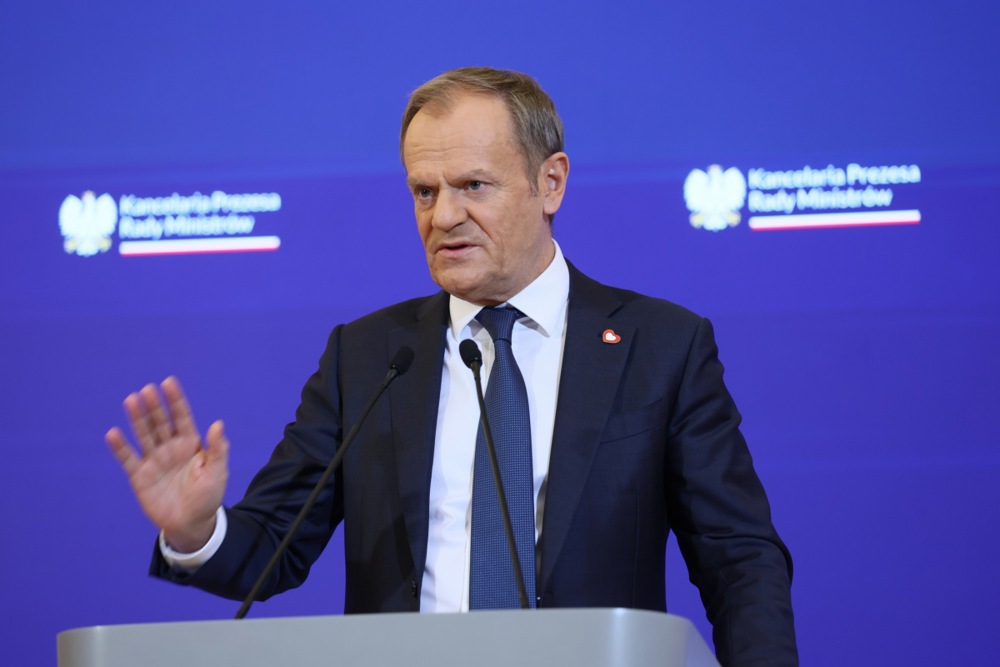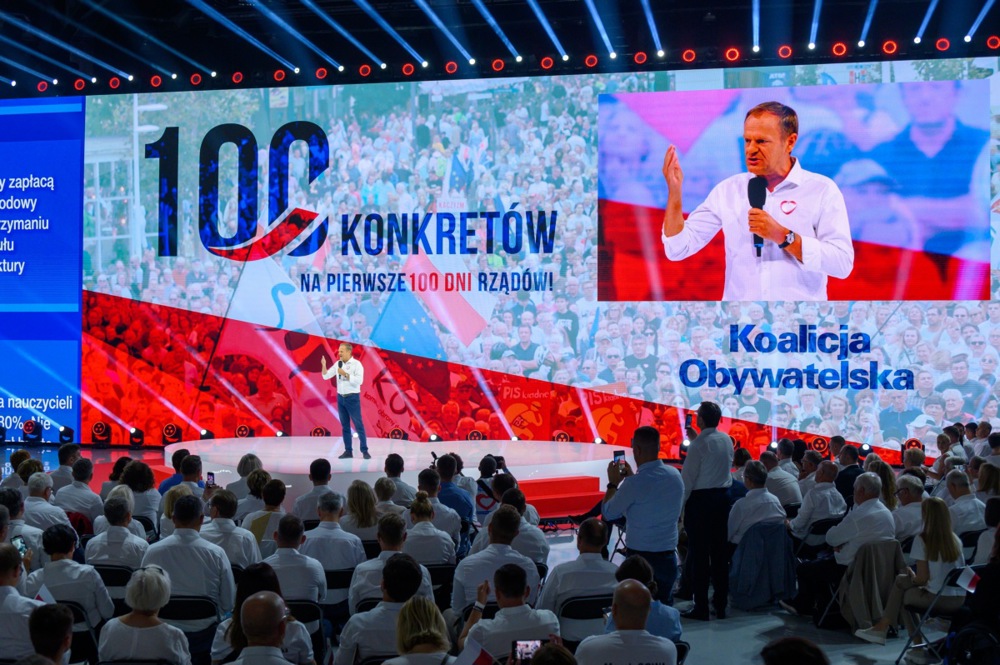On October 23 — the anniversary of the 1956 Revolution — Hungary once again became a place where the nation expressed its attachment to freedom and sovereignty.
It is a day reminding us of the Polish-Hungarian brotherhood and the hard truth that without real agency and independence from external pressures, freedom becomes an empty slogan, while the future of a society is shaped by outside decisions.
Our nations experienced the lack of sovereignty painfully enough. Viktor Orbán and his party Fidesz understand this very well.
For years they have defended and built Hungary’s sovereignty against numerous political threats. And for eight years under the PiS government, Poland was Hungary’s close ally in confronting European Union centralisation, the “woke” agenda aimed at children and youth, illegal migration, and many other threats in Europe.
The globalists’ victory in Warsaw in 2023 cut this co-operation short but when those same forces suffered defeat in Poland’s 2025 presidential election, victory returned to the patriots of Central Europe.
Poles quickly realised that Prime Minister Donald Tusk’s promises were deception and that his power relied on fear and propaganda.
This year, the parallels between Poland and Hungary have gained even more importance. Against Orbán’s massive Peace March stands the President of the Respect and Freedom Party in the European Parliament, Péter Magyar — called by many “the Hungarian Tusk.”
He and his supporters openly admit that they are following Tusk’s example. And indeed, the similarities are striking: The same Brussels patrons — President of the European People’s Party Manfred Weber and European Commission President Ursula von der Leyen — pressuring through blackmail and propaganda.
The same scenario deployed in Poland in 2023 is now being used in Budapest: Creating a black vision of a “broken state”, promising a “smiling country”, “national reconciliation”, “renewal”, and a supposed “cleansing” of the elite.
During the 2023 Polish parliamentary election campaign, Tusk surrounded himself with puppet centrist parties, creating the illusion of a broad “democratic bloc.”
The globalists understood that after years of contempt for national symbols and traditional values, they needed to change their disguise. Tusk, who once said that “Polishness is an abnormality”, ordered that the EU flags and rainbow banners disappear from his rallies.
Everything suddenly became “Polish,” “patriotic,” and “smiling”. “True Poland”, “rebuilding the state”, a “new beginning” — all empty slogans in the mouth of a globalist politician. Anyone observing Hungarian politics can already see the same masquerade in globalists’ camp.
Another parallel: Magyar’s speeches lack detail. This, too, repeats the Polish scenario.
For months Tusk attacked, threatened “accountability”, spread fear, and promised harmony and better governance, all without presenting real concrete ideas. He finally unveiled his notorious “100 specifics for the first 100 days” just before the vote—far too late for verification.
It was an illusion: After 100 days, only eight of these promises were delivered. After almost two years, he managed to reach 30, excusing this by claiming his party won 30 per cent support.
Meanwhile, under his rule Poles face a record budget deficit, rising prices and an agricultural crisis caused by uncontrolled imports of cheap Ukrainian produce, which leave Polish farmers unable to harvest their crops. Tusk has accepted mandatory migrant relocation and allowed Germany to push migrants back into Poland. In schools, his government pushes aggressive gender ideology, rejected by the overwhelming majority of parents and students.
But one promise is truly being fulfilled: Revenge. Tusk’s government has devastated the prosecution service, the courts and law enforcement. It violated international law by unlawfully detaining me — a sitting MP — leading to my political asylum in another EU member state and to Interpol’s refusal to issue a Red Notice.
Even the European Court of Human Rights, despite being dominated by Hungarian-American billionaire George Soros-linked networks, had to examine cases involving torture committed under Tusk’s government. But that is just the beginning.
NGOs that received state funding undergo endless audits. Conservative and church-related organisations are a particular target. Tens of thousands of citizens face pressure: Firefighters interrogated for having received grants for equipment; tax authorities ignoring VAT mafias and focusing solely on activities from eight years of PiS rule, contributing to the giant budget hole; specialised cyber units delaying investigations into criminal networks to instead examine seized devices of PiS politicians.
Purges sweep through public institutions: From ministries to county offices, clerks, assistants, even drivers and cleaning staff lose their jobs for any alleged sympathy with the Right. Moreover, ordinary citizens are not safe. One elderly woman was detained and taken to a police station simply for criticising a Liberal celebrity online.
“Accountability” is the one element of Magyar’s announcements that can truly be identified as a “specific.” Practically the only one that appeared in his speech on October 23.
This means that, in the event of a victory for his Tisza Party, one should expect Polish-style mass persecution. The globalists’ narrative about national reconciliation will become a fairy tale. Because it is the left-liberal circles that are the main catalyst of divisions — even hatred — in the public sphere. Their political project is built upon a belief in their own superiority, which corresponds with contempt for the “provincial, uneducated Right”, attached to old-fashioned views.
And if Fidesz or PiS dared — with a mandate from their own citizens — to disturb their power and interests, they will do anything — with foreign assistance — to regain that power and destroy their political opponents, so that power is never lost again. Slogans of national unity in their mouths are emptiness. Their political fuel is conflict and their political goal — de facto absolute power.
Hungary should absorb another crucial Polish lesson. Tusk assured voters that “nobody will outplay me in Europe”. After winning, he became utterly submissive to Berlin and Paris, sacrificing Polish interests.
Hungary now hears similar promises from Brussels: Flattery today, heavy demands tomorrow — at Hungary’s expense.
The Polish experience shows what happens when globalists capture the state: Unfulfilled promises, economic damage, repressions and rapid illegal takeover of key institutions — all under the false slogan of “restoring democracy.” Brussels applauds because Poland now assists, rather than obstructs, EU centralisation, forced migration quotas and radical social engineering.
Poland and Hungary again face similar pressures and technologies of power. Magyar speaks of a corrupt elite abusing power — while he himself serves the very elites seeking access to Hungary’s wealth, exactly as they accessed Poland’s.
But Hungary is in a better position today: It can observe Poland’s recent history and see the consequences in advance. Sovereignty must be protected not by listening to empty campaign slogans — but by recognising the real mechanism behind them: Temporarily hidden EU symbols, neutralised ideological emblems, soft language of smiles and reconciliation, and behind the scenes — tools to seize the state and redirect its power outward.
Poles learned this lesson the hard way, over the course of many difficult months. Hungarians have the chance to learn it before the trap closes.





Persecution, interrogation, arrest: How Tusk runs the Polish presidential election